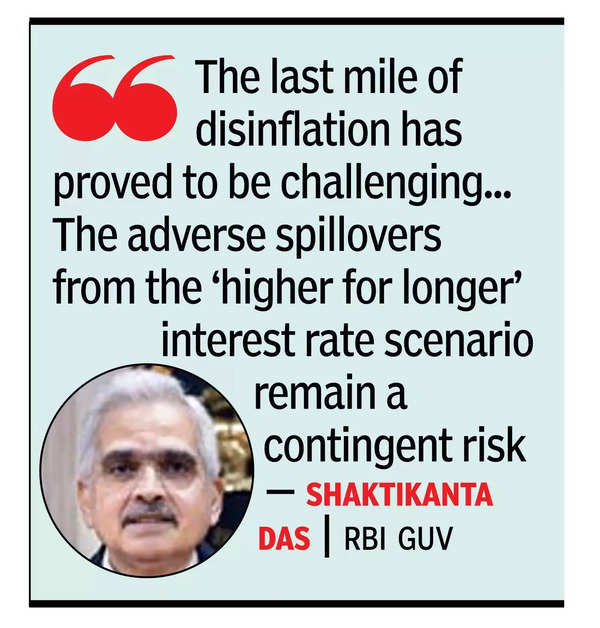MUMBAI: The new
external members
of RBI‘s
monetary policy committee
, who are likely to be appointed by govt this month, are set to face new risks to growth – evident in macroeconomic numbers.
RBI governor
Shaktikanta Das
noted some external risks to growth in a recent speech at a Bretton Woods event in Singapore. Besides Das, the MPC comprises five members including RBI’s deputy governor Michael Patra, and executive director Rajiv Ranjan.
In addition, three govt-appointed external members serve four-year terms: IGIDR Mumbai professor Ashima Goyal, NCAER New Delhi senior adviser Shashanka Bhide, and IIM-Ahmedabad professor Jayanth Varma. The four-year term of the external members ends on Oct 4, before the next MPC decision on Oct 9.
Among other factors, industrial production growth at 4.8% and April-June GDP at 6.7% suggest potential underperformance and may warrant policy reassessment. Das has explained the 6.7% dip as a blip due to lower govt spending during the elections.
While emphasising the resilience of the global financial system, Das noted several risks to global growth. “The last mile of disinflation (bringing down inflation) has proved to be challenging.” He warned that the persistence of
inflation
, particularly in the services sector, poses a significant risk, potentially delaying the return to price stability and increasing external, fiscal, and financial risks.
Another major concern noted by Das was the unprecedented high levels of global debt, which he said pose significant spillover risks to emerging markets. He warned that the coexistence of high debt levels and elevated interest rates could trigger financial instability. “The adverse spillovers from the ‘higher for longer’ interest rate scenario remain a contingent risk,” said Das.
He stated that
geopolitical risks
threaten
financial stability
due to rapid transmission and wide exposure. They increase volatility in capital flows and asset prices and disrupt global economic integration. He listed the risks as wars, terrorist attacks, trade disputes, political gridlocks, supply chain strains, technology decoupling, cyberattacks, weaponisation of finance, trade restrictions, financial sanctions, oil price volatility, and supply disruptions.
Das also underscored the risks posed by geopolitical tensions, which can lead to heightened volatility in capital flows and asset prices, impacting even countries not directly involved in conflicts. He noted that the geopolitical risk index has spiked sharply in 2024, reversing gains from decades of global economic integration.
Das noted the potential risks associated with the proliferation of non-banks and the rapid growth of private credit. He emphasised the need for regulators worldwide to closely monitor these developments and implement necessary safeguards.


